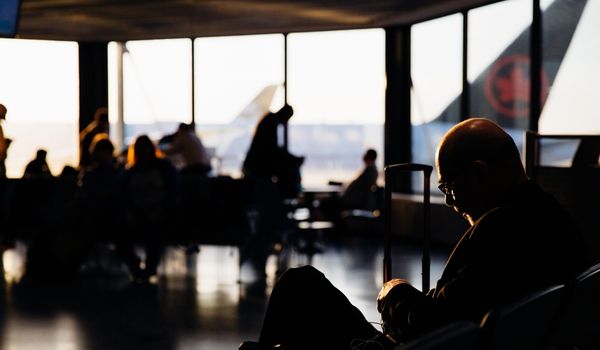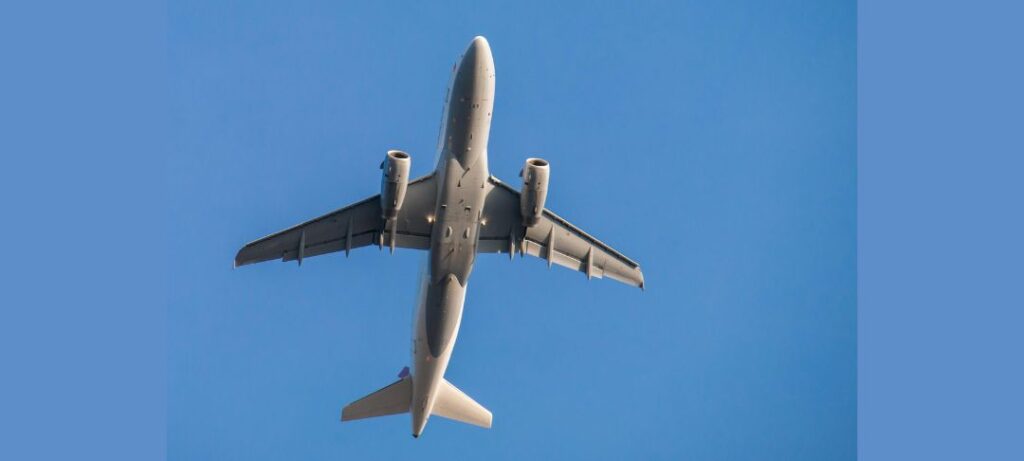Overbooking has long been a common practice in the airline industry. In the simplest terms, overbooking refers to selling more tickets than there are seats on a flight. Despite the inconvenience it causes travelers, it remains a lucrative strategy for airlines looking to maximize their profits. In this blog post, we will delve into the subject of overbooking and bumping, exploring the various policies and regulations that govern this practice, as well as the passengers who are most likely to be affected. Join us as we unravel the complexities of the overbooking conundrum and offer practical tips for travelers on how to avoid being bumped.
Airline Bumping Policies
Airlines have different policies when it comes to bumping passengers from overbooked flights. Some airlines, for instance, may bump passengers who have the lowest fare first, while others may bump those who checked in last. In some cases, airlines may choose to bump passengers based on their frequent flyer status or seat class. It is important for travelers to familiarize themselves with the bumping policies of their airline of choice before they book their flight. This information is usually readily available on the airline’s website or can be obtained by calling the airline’s customer service hotline.
However, all airlines must adhere to certain rules when bumping passengers. For instance, they must offer passengers compensation for their inconvenience and provide alternative travel arrangements. In some cases, airlines may offer incentives such as vouchers or upgrades to passengers who volunteer to be bumped. It is also worth noting that bumping policies can vary depending on the country or region in which the flight is taking place.
Passengers Most Likely to be Bumped
Airlines typically have a set of criteria that they use to determine which passengers to bump from overbooked flights. Some of the most common factors include fare class, frequent flyer status, and check-in time. Passengers who have booked the lowest fare are often the first to be bumped, as airlines try to make room for passengers who have paid more for their tickets. Meanwhile, passengers with higher frequent flyer status or those who have booked premium seats are often given priority and are less likely to be bumped.
Passengers who check in last are also more likely to be bumped, as airlines may have already given away seats to standby passengers or those with tight connections. In some cases, airlines may also choose to bump passengers based on their destination, especially if the flight is overbooked in a particular direction. For example, an airline may choose to bump passengers headed to a smaller or less popular destination in favor of those headed to a major city.
Overbooking Laws and Regulations
The practice of overbooking and bumping is governed by a complex web of laws and regulations. In the United States, for instance, the Department of Transportation has established rules that require airlines to compensate passengers who are involuntarily bumped from overbooked flights. In Europe, the European Union has similar rules, with the amount of compensation being determined by the distance of the flight and the length of the delay.
However, it is important to note that these regulations vary widely depending on the country or region in which the flight is taking place. In some cases, airlines may be required to provide passengers with a written explanation of their rights, while in others, they may be required to offer compensation in the form of vouchers or upgrades. It is crucial for travelers to familiarize themselves with the laws and regulations that govern overbooking and bumping in their home country and in the countries they plan to travel to. This will help them to better understand their rights and know what to expect if they are involuntarily bumped from a flight.
Airlines’ Obligations to Bumped Passengers
When a passenger is involuntarily bumped from a flight due to overbooking, airlines have certain obligations to those passengers. These obligations vary depending on the country or region in which the flight is taking place, but there are certain common practices that airlines must follow. For example, airlines must offer passengers compensation for their inconvenience and provide alternative travel arrangements. In some cases, airlines may offer incentives such as vouchers or upgrades to passengers who volunteer to be bumped.
However, the amount of compensation offered can vary widely, with some airlines offering a few hundred dollars while others may offer much less. It is also worth noting that airlines may have different policies regarding the type of compensation they offer. Some may offer vouchers for future travel, while others may offer cash or travel credits. In some cases, airlines may be required to provide meals, hotels, or ground transportation to passengers who are bumped from a flight.
Passengers who are involuntarily bumped from a flight also have the right to be informed of their rights and the compensation they are entitled to. Airlines must provide this information in writing, and it must include a clear explanation of the amount of compensation they are offering, as well as any other benefits they may provide, such as vouchers or upgrades. In addition, airlines must provide passengers with a written explanation of their rights, including their right to file a complaint with the Department of Transportation if they are dissatisfied with the compensation they receive.
How to Avoid Getting Bumped

While overbooking and bumping can be an inconvenience for travelers, there are steps you can take to avoid being involuntarily bumped from a flight. One of the most effective ways to avoid being bumped is to arrive at the airport early. Checking in early and obtaining a boarding pass as soon as possible can increase your chances of avoiding a bump, as airlines may have already given away seats to standby passengers or those with tight connections.
Another way to avoid being bumped is to fly during off-peak hours. Flights that are scheduled during off-peak hours are less likely to be overbooked, and therefore, you are less likely to be bumped. In addition, it is a good idea to fly on weekdays rather than weekends, as weekends are often busier and more likely to be overbooked.
It is also worth considering booking your flight well in advance, as airlines are more likely to overbook flights that are scheduled to depart in the near future. Booking your flight in advance can also help you to secure a better fare and reduce the risk of being bumped.
Finally, consider the airline you fly with and their bumping policies. Airlines have different policies when it comes to bumping passengers, so it is a good idea to familiarize yourself with the policies of your airline of choice before you book your flight. This information is usually readily available on the airline’s website or can be obtained by calling the airline’s customer service hotline.
What to do if you get Bumped
If you are involuntarily bumped from a flight due to overbooking, there are steps you can take to ensure you are treated fairly. The first thing you should do is remain calm and speak to the airline representative. Explain your situation and ask for alternative travel arrangements and compensation for your inconvenience. If the representative is unable to offer you a suitable alternative, ask to speak to a supervisor.
It is also important to keep records of your interactions with the airline, including the date, time, and names of the representatives you speak to. This information can be useful if you need to file a complaint with the Department of Transportation or another governing body.
If you are dissatisfied with the compensation offered by the airline, you can negotiate for a higher amount or ask for additional benefits such as vouchers or upgrades. If the airline is unwilling to negotiate, you can file a complaint with the Department of Transportation or another governing body.
In addition, consider seeking legal advice if you feel that your rights as a passenger have been violated. This may be necessary if you have been bumped from a flight without sufficient compensation or if you have suffered additional costs or expenses as a result of the bumping.
Finally, it is important to know your rights as a passenger. Airlines are subject to different regulations and laws depending on the country or region in which the flight is taking place, so it is important to familiarize yourself with the laws and regulations that apply to you. The Department of Transportation provides a wealth of information on the rights of passengers, and you can also consult a lawyer or consumer advocacy group if you need additional help or advice.
In conclusion, being bumped from a flight due to overbooking can be frustrating and inconvenient, but by understanding the policies, regulations, and laws that apply to you, you can better protect your rights as a passenger. Whether you are trying to avoid being bumped or dealing with the aftermath of a bump, it is important to remain informed and take steps to ensure that you are treated fairly.
Bumping and its Effect on Passengers
Being bumped from a flight can be a frustrating and stressful experience for passengers. In some cases, it may result in missed connections, delayed trips, and additional costs, such as hotel expenses or meals. For passengers with tight schedules or plans that cannot be changed, being bumped can have serious consequences.
In some cases, passengers may feel that they have been treated unfairly by the airline and may feel frustrated or angry. This is particularly true if they have been denied boarding despite having confirmed reservations or if they have been bumped without sufficient compensation. Passengers may also experience anxiety or stress due to uncertainty about their travel plans or the availability of alternative flights.
In addition to the direct effects on passengers, bumping can also have a negative impact on airlines’ reputation and customer loyalty. Passengers who have had a negative experience with a particular airline are less likely to fly with them again in the future and may choose to fly with a competitor instead. This can result in lost revenue and reduced customer loyalty for the airline.
Airlines’ Responsibility for Bumped Passengers
Airlines have a responsibility to their passengers to minimize the inconvenience and stress caused by overbooking and bumping. This includes providing clear and accurate information about the policies and procedures for overbooking and bumping, as well as providing timely and appropriate compensation to affected passengers.
Airlines should also provide passengers with alternative travel options if they are denied boarding due to overbooking. This may include rebooking passengers on the next available flight or offering vouchers for future travel. If passengers are delayed as a result of being bumped, airlines should also provide them with reasonable compensation, such as meals, hotel accommodations, or other expenses incurred as a result of the delay.
Conclusion
Overbooking and bumping may be inconvenient for travelers, but it remains a common practice in the airline industry. In this blog post, we have explored the various policies and regulations that govern the practice, as well as the passengers who are most likely to be affected. Whether you are a seasoned traveler or just starting out, it is important to educate yourself on the subject of overbooking and bumping. By familiarizing yourself with the rules and regulations, as well as the policies of your airline of choice, you can better prepare yourself in the event that you are involuntarily bumped from a flight. Remember, knowledge is power, and by understanding your rights, you can avoid the frustration and inconvenience that often comes with being bumped from an overbooked flight.
